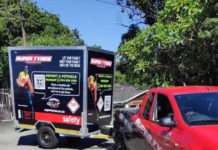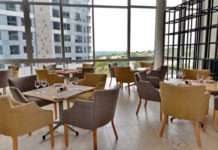Let us take a look back at some of the more significant events; that changed South Africa from the land of milk and honey into a crime infested country that has lost its way.
The crime was a problem during the apartheid era but mainly confined to the black townships. The competent white police force kept the crime under control. The judicial system worked, and harsh sentences were handed over including the death penalty for murders and rapes. However many the blacks hated the bitter race laws, they had no desire to live without the physical protection of the white police force. Now Crime is a major problem and uncontrollable.
The MK military group became famous for their bombing campaign and especially the Church Street bombing where 19 people were killed. On May 20, 1983, a car bomb attack in the South African capital Pretoria was one of the largest attacks engaged by the ANC during its armed struggle. The target was the South African Air Force headquarters, and the bomb set off during rush hour killing and wounding civilians. Nobody wants to remember the innocent victims that died at the hands of the ANC terrorists.

The state president P W Botha, on January 31, 1985, offered to release Mandela from prison on condition that he renounces violence as a protest to bring about change in the country. Nelson Mandela refused the offer and his daughter Zinzi Mandela read a statement at a rally in Soweto on February 10, 1985. In the declaration, Mandela said he only adopted violence as a means of protest, when all other forms of resistance had failed.
During this time, some other political prisoners of the ANC accepted the government’s proposal and were released from prison. Mandela called for the unbanning of the ANC and asked the British government to negotiate with the organization as a political party. The South African government stated that they were prepared to start negotiations if the ANC group renounced violence.
Mandela denied being a part of the Communist Party, and it is a lie that everybody knows. He worked closing with the Communist Party of South Africa, and Mandela never renounced any of his ties with the communist leaders. Several years ago, a report in the media confirmed his close relationship with communist dictator Fidel Castro among others.
Mandela during this time admitted that the ANC used torture against any suspected enemy agents, including white people. Many of the violent acts were directed against the Zulus and the Zulu political movement, the Inkatha Freedom Party and not the apartheid government. After release from prison, Mandela would indulge in the fantasies about killing whites.
Torture by the ANC military wing would include electric shocks, suffocating with gas masks, hit with brooms all day long, climb a tree full of wasps and cut down a tree full of bees. Other methods of their torture included being forced to undress and lie on the ground in the middle of ants or being hit on the buttocks with a tree branch for the entire day. Is this what “normal” people do?
The acts of torture used by the ANC cadres were an absolute human rights violation and a merciless conduct. The people executed after conviction by the ANC military tribunal were not afforded proper legal representation and suffered gross violations of their human rights. The allegations of torture, although not the ANC policy was used more from the Security unit to obtain data and confessions by people held in camps during the 1979/89 period.
In 1987, Margaret Thatcher condemned the ANC as a typical terrorist organization. Why did nobody listen?
The Conservative Party youth called for him to be given the death penalty by distributing propaganda. The United States listed the ANC as a terrorist organization until 2008. The President of America at that time; Ronald Reagan resisted the call to impose sanctions on the South African Government. President Reagan had support. However, Richard Lugar argued for a confrontation with the white South African Government, which led to some serious sanctions being imposed against the country.
This is South Africa and its memories of the past, stay tuned for part three and the continuation of events that lead up to the falling democracy.
Remembering the past South Africa – Part 1
Remembering the past South Africa – Part 3
Remembering the past South Africa – Part 4
Remembering the past South Africa – Part 5
South Africa Today – South Africa News












